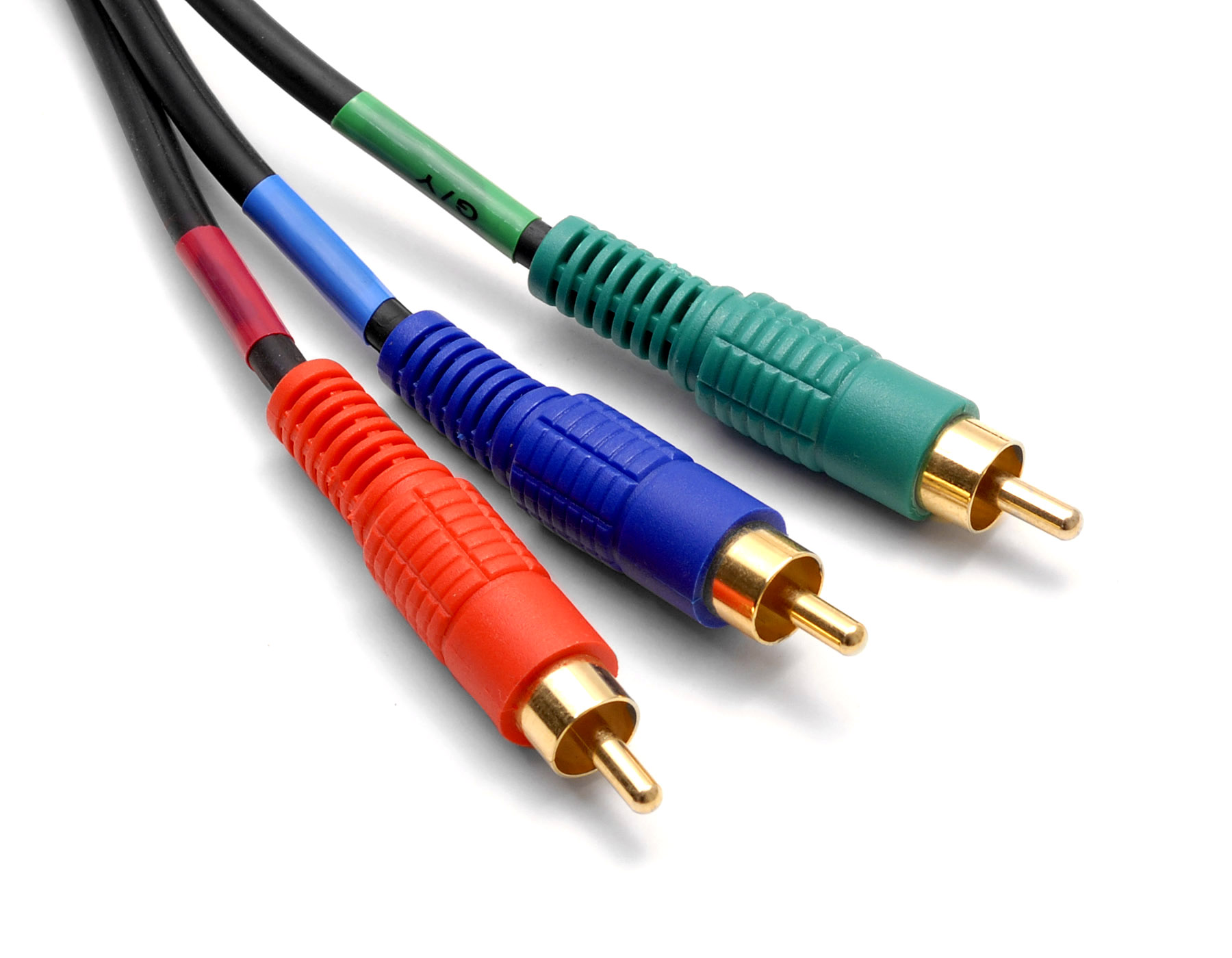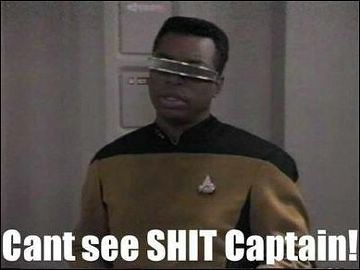Inaccurate meme - the white and red RCAs in composite typically don’t actually carry the left and right channels - usually, the white one is L+R, meaning both the left and right channels combined into one, and the red one is L-R, the difference between the right and left channels.
This is done so that a mono television, which will only have a yellow and white port, will still be able to hear both audio channels, as opposed to having to completely miss out on one of them
Wow, Til I guess. Never ever thought that this is what actually it is for.
That makes so much sense! I never understood it, and it became irrelevant before I worked it out.
It’s so funny, I had the same reaction! Never quite understood it, just switched plugs until it worked. Then it got phased out and… decades later a meme brings light to my confusing childhood!
Do you have a source for this? AFAICT this is untrue. Mono audio using just the white connector exists, but this depends on configuration and does not make the red connector a difference signal.
I swear that I’ve seen it mentioned somewhere, but you are entirely right that I can’t find a source. Maybe it was some weird device I used a long time ago? Regardless, sorry for not doing my research before posting
The signal in fm radio works like you described. Poor fm, declassified to just some weird device :(
The video cable does a similar trick with how it supports color. This is why S-Video was superior to composite video until component came along. S-Video split the intensity and color into two signals and then component split the color further into a blue difference and a red difference. If you only wanted black and white, you didn’t need to use the color signals and the image would degrade to a monochrome representation.
The composite video, with only one video signal wire, was similar to what was received over the antenna, with the broadcast signal separated from the carrier signal and the audio sub bands removed. It was the video signal with the color signal still combined. The progression from Antenna -> Composite -> S-Video -> Component -> DVI-I -> DVI-D -> HDMI -> Display Port has been an interesting one. The changes in the digital realm have been less about the image quality, the digital signal can either be read or not, and more about the bandwidth and how much data can be sent, aka resolution and framerate. Those first four transitions in particular had significant impact on the image quality.
This must be BS or a regional thing. All the RCA ports I’ve seen in North America are labeled L and R, not L+R and L-R.
I use those on my speakers and I can flip left/right stereo if I flip the cables. I think that confirms that they don’t have both in one I think.
It’s possible that it might only be a thing in PAL regions - I’d try, but I don’t have anything that uses composite to try now.
I can confirm that everything that uses component and L/R that I have used in my life (born in 2001 in the Netherlands, so PAL) has separate L and R channels. I have confirmed this with my multimeter before.
Oh, they did the same with stereo radio.
I appreciate you starting this comment with ‘Inaccurate meme’. I think it should become a thing. Really helps me know to buckle in for something good
Transcription:
Audio Right + Composite Video
Composite Video
Audio Right + Audio LeftThank you. Guess I must be a HDMI kid, who would have known.
Audio Right + Composite Video
Is that the guy that cut his ear off?
Vincent van Gogh, yes.
Only the tip.
Mike Tyson and Evander Holyfield comes to mind…
They why did Radio Shack sell me a Y adapter to combine left and right?
It’s so you can use stereo speakers with a mono source
Pretty sure Van Gogh wasn’t deaf in that ear though.
Things probably sounded weird there though. Lots of whooshing.
Definitely. A piercing in my conch, was enough to give me some mildly annoying tinnitus for years.
Can’t imagine if my ear was just…gone.
Weird that your vagina would do that
Conch you fool, not cootch…jeeze , lol
He only took off a small portion of his ear.
Well then that’s not so bad. I mean it still will change the way you hear, but definitely not as drastic.
I was always under the impression he had like at least 3/4 of the ear gone. Lame.
TIL
His GF could whisper in his ear all the way from across town.
I think it might be the opposite, our ears direct and funnel sound
I’m viewing this through the Liftoff app and your username has big block letters and a blue circle for the O but looks normal when viewed from other apps. Is that some customization you can do that only shows up if an app supports it?
It’s Unicode and emojis in the display name. Some instances don’t have a display name, just the username.
I think in your user profile settings, you can set a separate display name. Then it’s up to the client on how to render your username/displayname.
I think y’all are nitpicking this joke too hard
gamerz like me:

laughs in european
I present to you: the Scart.
Our gaming consoles came with it.
We were clueless the first time we hooked up our N64 at gran-gran, since the old TV did not have a Scart connector, but we figured out that the Scart’s colored cables go in there.
Scart was amazing. RGB, composite, component, audio. All in one cable. Granted that cable and connector were enormous, but one cable nonetheless.
SCART was terrible.
Theoretically it had all that in one cable, in practice it never did. You’d usually have 3-4 SCART ports on a TV, but not all ports accepted our output the same signals. There was no way to tell from the outside what the output or input from a SCART port so you either had to try different port combinations or look it up in the manual (if you had one). Most TV’s had one port that accepted s-video, on that accepted RGB and they usually accepted composite on all ports.
Worse, not all cables had all 21 connections. If you were lucky you could tell because not all pins on the connector would be there (but this wasn’t necessary the case).
Usually there was also one port on a TV that output the video from the tuner. This was used for analog pay TV decoders. You would hook it up to that SCART port and it would get the scrambled video from the TV and return the descrambled video over the same port.
Also, due to the size and design of the connector it was almost impossible to insert it blindly. Inserting one into the back of one of those enormous CRT television was always a challenge.
Oh yeah the shielding was a nightmare to align with the socket correctly
This is actually a pretty helpful diagram for when I inevitably forget which color does what
Not even the SCART kids get it.
What’s SCART kids?
Ahh SCART, the beafiest connector. Feels like you’re plugging/unplugging a nuclear power plant.
I see your SCART, and I raise you one Monsters Inc. Scream Extractor power plug.
Europeans
Americans and their NTSC!
Yeah never seen those in the states outside of very old production gear
VGA was so much better.
The composite video output commonly seen on 1980s microcomputers couldn’t display high-resolution text without severe distortion making the text unreadable. This could be seen on the IBM PCjr, for example, where the digital RGB display it came with could display 80×25 text mode just fine, but if you connected a composite video display (i.e. a TV) instead, 80×25 text was a blurry, illegible mess. The digital video output was severely limited in color depth, however; it could display only a fixed palette of 16 colors, whereas the distortion in the composite video could be used to create many more colors, albeit at very low resolution.
Then along came the VGA video signal format. This was a bit of a peculiarity: analog RGB video. Unlike digital RGB of the time, it was not limited in color depth, and could represent an image with 24-bit color, no problem. Unlike composite video, it had separate signal lines for each primary color, so any color within the gamut was equally representable, and it had enough bandwidth on each of those lines to cleanly transmit a 640×480 image at 60Hz with pretty much perfect fidelity.
However, someone at IBM was apparently a bit of a perfectionist, as a VGA cable is capable of carrying an image of up to 2048×1536 resolution at 85Hz, or at lower resolutions, refresh rates of 100Hz or more, all with 24-bit color depth—far beyond what the original VGA graphics chips and associated IBM 85xx-series displays could handle.
Also, the VGA cable system bundled every signal line into a single cable and connector, so no more figuring out which cable plugs in where, and it being so future-proof meant that, for pretty much the entire '90s, you could buy any old computer display and plug it into any old computer and it would just work.
Pretty impressive for an analog video signal/cable/connector designed in 1987.
I didn’t stop using VGA until I had a monitor new enough to not support it. Also, DVI was great because of the VGA support.
I still use it

I remember Christmas day getting a ps1 pulling out the cables and realizing that my tv didn’t have the right ports and had to wait a couple of days to play it since the stores where closed and I couldn’t buy one of those cables that connected to where the cable tv goes . Then getting stuck at the first section of tomb raider 2 for the next couple of days …
deleted by creator
Composite cables.
Red is Right Audio
White is Left Audio
Yellow is Video.
Vincent van Gogh cut off his left ear but has his sight.
Mozart lost his ability to hear but has his sight.
Ray Charles is blind but unable to see.
Ray Charles is blind but unable to see.
ah yes the floor here is made out of floor
my cat’s breath smells like cat food
Gotta commend the format completion though.
deleted by creator
Pretty sure that’s Stevie Wonder lol
It is also Beethoven, not Mozart.
You are both wrong, these are pictures of Beethoven and Stevie Wonder, not the actual people.
Close enough! Tripped at the finish line
Tripped a little earlier. It’s not Mozart but Beethoven.
Thank you for explaining
Stevie Wonder🙄
Stevie Wonder😎*
Lol, I’ll remember that for next time.😉
No this is clearly a loss meme, just missing a panel
The xbox 360 still came with composite video cables and a scart adapter. That’s not THAT long ago.
This is RCA. Wasn’t composite early HD with RBG-RW?
You’re thinking of component. The two are (or were) frequently mixed up.
Yep, you’re right! Ah the memories.
A good way to remember is that RGB on the same wire is a Composite signal whereas when they have their own cables they are sent as individual Components.
Composite is Red, White(Sometimes black) and Yellow.
The best way to remember is Composite rhymes with shit.
RCA is just the connector, composite video is all the video signal chucked into one cable - component video splits it out into the colour components (getting the signal to that early HD level)
This is RCA (the left / right audio) and composite video.
This meme would have been better with component video and TOSLINK or S-Video and toslink.
I don’t see how this meme would be better with an audio cable that doesn’t have a separate physical signal path for left and right channels. The Van Gogh panel wouldn’t make any sense.
Channel 03 gang represent!
Screw channel 3, channel 4 is where it’s at.
Oh, it’s on. I bet you had a Sega. Pfft
Panel 4: Hellen Keller / Empty Square
I have no clue…
Yellow is video, red and white are left and right audio





















